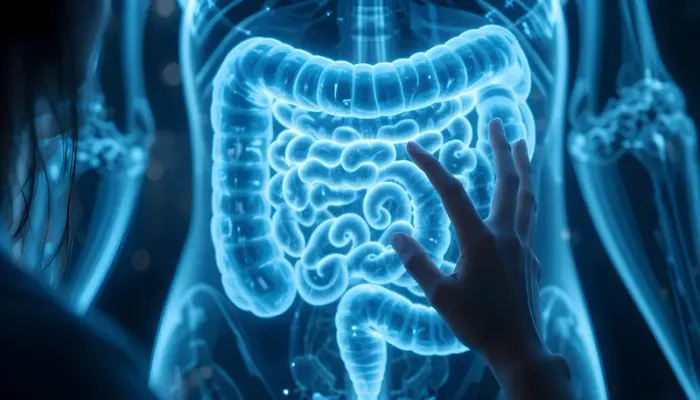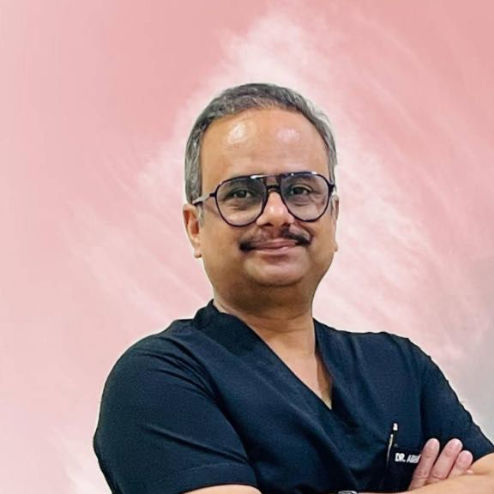Gastroenterology Guide: Digestive Health Explained
Learn about gastroenterology and how to maintain digestive health with expert tips and guidance.

Written by Dr. Siri Nallapu
Reviewed by Dr. Shaik Abdul Kalam MD (Physician)
Last updated on 13th Jan, 2026

Introduction
Have you ever experienced persistent heartburn, unexplained stomach pain, or a sudden change in your bowel habits? You're not alone. Digestive issues are among the most common reasons people seek medical care, impacting millions of lives. This is where the field of gastroenterology comes in, a vital medical specialty dedicated to the health of your digestive system, or what many simply call the "gut." This complex system, stretching from your mouth to your rectum, is responsible for breaking down food, absorbing nutrients, and eliminating waste. When it's not functioning properly, it can affect your entire well-being. This comprehensive guide will demystify gastroenterology, exploring the common conditions specialists treat, the life-saving procedures they perform, and practical steps you can take to maintain optimal digestive health. Whether you're managing a chronic condition or simply want to understand your body better, this article will provide the insights you need to navigate the world of gut health confidently.
What is Gastroenterology? The Science of Your Gut
Gastroenterology is the branch of medicine focused on the digestive system and its disorders. Physicians who specialise in this field, known as gastroenterologists, are experts in managing diseases affecting the gastrointestinal (GI) tract, which includes the oesophagus, stomach, small intestine, colon, rectum, pancreas, gallbladder, bile ducts, and liver. Their training is extensive, typically involving over a decade of education after high school, including medical school, a residency in internal medicine, and a specialised fellowship in gastroenterology. This deep knowledge allows them to diagnose complex digestive problems with precision.
What Does a Gastroenterologist Do?
A gastroenterologist wears many hats. They are diagnosticians, proceduralists, and long-term care managers. Their work involves:
• Consultation: Discussing symptoms, medical history, and family history to form an initial assessment.
• Diagnosis: Utilising a range of tests, from blood work and stool samples to advanced imaging and endoscopic procedures.
• Treatment: Developing personalised treatment plans that may include medications, lifestyle modifications, nutritional counseling, or surgical coordination.
• Prevention: Performing screening tests, like colonoscopies, to detect precancerous polyps and prevent colorectal cancer.
Unlike general practitioners, they possess specialised skills in performing procedures like endoscopy and colonoscopy, giving them a direct view inside the GI tract for accurate diagnosis and even treatment during the same procedure.
The Gastroenterologist vs. The Proctologist: What's the Difference?
This is a common point of confusion. While both deal with the digestive system, their focus areas differ. A gastroenterologist manages the entire digestive tract, from the oesophagus to the rectum. A proctologist (now more commonly known as a colorectal surgeon) is a surgeon who specialises specifically in surgical treatments of diseases of the colon, rectum, and anus. You would typically see a gastroenterologist first for a diagnosis (e.g., for persistent rectal bleeding), who might then refer you to a colorectal surgeon if a surgical procedure is needed.
Consult a Gastroenterologist for the best advice
Common Gastrointestinal Conditions and Diseases
The spectrum of conditions within gastroenterology is broad. Understanding these common ailments is the first step toward seeking appropriate care.
Acid Reflux and GORD (Gastro-oesophageal Reflux Disease)
Almost everyone experiences occasional heartburn or acid reflux, where stomach acid flows back into the oesophagus. However, when this happens more than twice a week, it may be diagnosed as GORD. Chronic GORD can lead to serious complications like esophagitis (inflammation) or Barrett's oesophagus, a pre-cancerous condition. Treatment often involves lifestyle changes (e.g., weight loss, dietary adjustments) and medications to reduce acid production.
Inflammatory Bowel Disease (IBD): Crohn's and Ulcerative Colitis
IBD is a term for two chronic conditions that cause inflammation of the GI tract: Crohn's disease and ulcerative colitis. Crohn's can affect any part of the GI tract, while ulcerative colitis is limited to the colon. These are autoimmune conditions, distinct from Irritable Bowel Syndrome (IBS). Symptoms include severe diarrhoea, abdominal pain, fatigue, and weight loss. Management requires long-term medical therapy and monitoring by a gastroenterology specialist to control inflammation and prevent flares.
Irritable Bowel Syndrome (IBS)
IBS is a common functional disorder, meaning it affects how the gut functions without causing visible damage. It's characterised by a group of symptoms like cramping, abdominal pain, bloating, gas, and diarrhoea or constipation (or both). While the exact cause is unknown, triggers often include certain foods, stress, and hormones. Treatment focuses on managing symptoms of gastrointestinal problems through diet, stress management, and medication.
Celiac Disease and Gluten Sensitivity
Celiac disease is a serious autoimmune disorder where ingestion of gluten (a protein in wheat, barley, and rye) damages the small intestine, preventing nutrient absorption. Non-celiac gluten sensitivity causes similar symptoms (bloating, fatigue) without the intestinal damage. A proper diagnosis from a gastroenterologist, which may involve an endoscopy to take a small intestinal biopsy, is crucial for effective management, which primarily involves a strict gluten-free diet.
Essential Diagnostic Procedures in Gastroenterology
One of the hallmarks of this specialty is the use of direct visualisation techniques to diagnose and treat conditions accurately.
Endoscopy: A Look Inside Your Upper GI Tract
An upper endoscopy (or EGD) is a procedure where a thin, flexible tube with a camera (endoscope) is passed through the mouth to examine the oesophagus, stomach, and the beginning of the small intestine. It is invaluable for investigating causes of swallowing difficulties, nausea, vomiting, abdominal pain, and bleeding. Through the endoscope, a gastroenterologist can also take tissue samples (biopsies) and treat conditions like bleeding ulcers.
Colonoscopy: Crucial for Colon Cancer Screening
A colonoscopy is a similar procedure where the scope is passed through the rectum to examine the entire colon. It is the gold standard for colon cancer screening, recommended for most adults starting at age 45. The primary advantage is its ability to both detect and remove precancerous growths called polyps during the procedure, effectively preventing cancer from developing. Understanding how to prepare for a colonoscopy is key to its success, as a clean colon is essential for clear visibility.
Understanding Capsule Endoscopy and Imaging Tests
For areas difficult to reach with a standard endoscope, such as the middle of the small intestine, a capsule endoscopy may be used. The patient swallows a vitamin-sized capsule containing a tiny camera that takes thousands of pictures as it passes through the digestive tract. Other important imaging tests include CT scans and MRIs, which provide detailed views of the organs like the liver and pancreas.
Maintaining a Healthy Gut: Prevention and Lifestyle
Preventive care is a cornerstone of modern gastroenterology. A proactive approach can often prevent minor issues from becoming major problems.
The Gut-Brain Connection: How Stress Affects Digestion
The GI tract is highly sensitive to emotions. The gut has its own nervous system (the enteric nervous system) that communicates directly with the brain. This "gut-brain axis" is why stress can trigger physical symptoms of gastrointestinal problems like stomach aches, diarrhoea, or a loss of appetite. Managing stress through techniques like meditation, regular exercise, and adequate sleep is a powerful tool for maintaining digestive harmony.
Diet Tips for Optimal Digestive Health
What you eat directly fuels your gut. A diet for a healthy gut microbiome is rich in:
• Fibre: Found in fruits, vegetables, and whole grains, fibre helps maintain regular bowel movements and feeds beneficial gut bacteria.
• Probiotics: These live bacteria (found in yogurt, kefir, and fermented foods) can help restore the natural balance of your gut flora.
• Water: Adequate hydration is essential for softening stool and preventing constipation.
It's also wise to limit processed foods, excessive red meat, and sugars, which can disrupt gut health.
When Should You See a Gastroenterologist?
While occasional indigestion is normal, certain signs warrant a professional evaluation. You should consider consulting a specialist if you experience:
• Persistent heartburn or acid reflux that doesn't respond to over-the-counter medications.
• Unexplained, persistent abdominal pain.
• Significant changes in bowel habits (diarrhoea or constipation) lasting more than a few weeks.
• Rectal bleeding or blood in your stool.
• Unintentional weight loss.
• Difficulty swallowing.
Conclusion
Your digestive health is fundamental to your overall quality of life. The field of gastroenterology plays a critical role in ensuring this complex system functions smoothly, offering everything from preventive screenings to advanced treatments for chronic diseases. By understanding the basics of how your gut works, recognising the signs that something may be wrong, and adopting a proactive approach to health, you empower yourself to take control. Remember, open communication with your doctor is key. Don't hesitate to seek help for persistent digestive issues; it's the first and most important step toward finding relief and maintaining your well-being for years to come.
Consult a Gastroenterologist for the best advice
Consult a Gastroenterologist for the best advice

Dr. Amit Pandita
Gastroenterology/gi Medicine Specialist
10 Years • MBBS. MD (INTERNAL MEDICINE) DrNB (GASTROENTEROLOGY AND HEPATOLOGY)
Delhi
Apollo Hospitals Indraprastha, Delhi

Dr. Ankit Vijay Agarwal
Gastroenterology/gi Medicine Specialist
14 Years • MBBS(Osmania), DNB(Internal Medicine ), DM ( Osmania) Consultant Gastroenterologist, Hepatologist and Advanced Therapeutic Endoscopist
Hyderabad
Apollo Hospitals Jubilee Hills, Hyderabad

Dr Piyush Vishwakarma
Gastroenterology/gi Medicine Specialist
11 Years • MBBS, MD, DrNB,
Delhi
Apollo Hospitals Indraprastha, Delhi

Dr Abhishek Tiwari
Minimal Access/Surgical Gastroenterology
15 Years • MBBS, MS, Diabetic Foot Course (Pisa, Italy)
Delhi
Apollo Hospitals Indraprastha, Delhi

Dr. Shivaraj Afzalpurkar
Gastroenterology/gi Medicine Specialist
13 Years • MBBS, MD General medicine (Gold medalist), DrNB (Gastroenterology), MNAMS
Bengaluru
Apollo Clinic, JP nagar, Bengaluru
Consult a Gastroenterologist for the best advice

Dr. Amit Pandita
Gastroenterology/gi Medicine Specialist
10 Years • MBBS. MD (INTERNAL MEDICINE) DrNB (GASTROENTEROLOGY AND HEPATOLOGY)
Delhi
Apollo Hospitals Indraprastha, Delhi

Dr. Ankit Vijay Agarwal
Gastroenterology/gi Medicine Specialist
14 Years • MBBS(Osmania), DNB(Internal Medicine ), DM ( Osmania) Consultant Gastroenterologist, Hepatologist and Advanced Therapeutic Endoscopist
Hyderabad
Apollo Hospitals Jubilee Hills, Hyderabad

Dr Piyush Vishwakarma
Gastroenterology/gi Medicine Specialist
11 Years • MBBS, MD, DrNB,
Delhi
Apollo Hospitals Indraprastha, Delhi

Dr Abhishek Tiwari
Minimal Access/Surgical Gastroenterology
15 Years • MBBS, MS, Diabetic Foot Course (Pisa, Italy)
Delhi
Apollo Hospitals Indraprastha, Delhi

Dr. Shivaraj Afzalpurkar
Gastroenterology/gi Medicine Specialist
13 Years • MBBS, MD General medicine (Gold medalist), DrNB (Gastroenterology), MNAMS
Bengaluru
Apollo Clinic, JP nagar, Bengaluru
More articles from General Medical Consultation
Frequently Asked Questions
1. What is the difference between a gastroenterologist and a gastrologist?
'Gastrologist' is an outdated and less precise term. The correct specialty is gastroenterology, which encompasses the entire digestive system (gastro- for stomach, -entero- for intestines), not just the stomach. A gastroenterologist has training that goes far beyond just stomach issues.
2. How painful is a colonoscopy?
Most patients are under sedation during a colonoscopy and feel little to no pain. The most challenging part for many is the preparation the day before, which involves drinking a solution to empty the colon. The procedure itself is quick (typically 30-60 minutes) and is well-tolerated.
3. Can stress really cause stomach ulcers?
While stress and spicy foods don't directly cause most stomach ulcers, they can aggravate existing ones. The primary causes are an infection with the bacterium H. pylori and long-term use of nonsteroidal anti-inflammatory drugs (NSAIDs) like ibuprofen. However, stress can significantly worsen symptoms of gastrointestinal problems.
4. At what age should I get a colonoscopy?
For most people at average risk for colorectal cancer, screening is recommended to begin at age 45. If you have a family history of colon cancer or certain other risk factors, your doctor may recommend starting earlier.
5. Are probiotics necessary for good gut health?
For generally healthy individuals, a balanced diet rich in fibre and fermented foods may be sufficient. However, probiotics can be beneficial during and after a course of antibiotics or for managing specific conditions like Irritable Bowel Syndrome (IBS). It's best to discuss with your doctor whether a specific probiotic strain is right for you.




